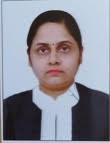
– Richa Mittal*
(Samaj Weekly)- This article expresses profound apprehension regarding the ongoing selection of experts for the empowered committee and selection committees responsible for evaluations, appointments, promotions, within higher educational institutions (HEIs) of India.
While the universities have established clear guidelines and standard operating procedures for the selection of assistant professors, associate professors, professors, and senior professors, there seems to be a concerning gap when it comes to defining the criteria for designating individuals as “experts” to serve on these crucial committees.
The term “expert” is of paramount importance as it shapes the future of the academic institutions and, by extension, the quality of education. However, the lack of well-defined parameters for what constitutes an “expert” is perplexing and, frankly, embarrassing. What criteria are used to designate someone as an expert? Is it solely based on their API score, Google citations, Scopus documents, Scopus citations, Vidwan score, or educational qualifications? or only their designation? Research profiles of a candidate can be visualized from their scopus profile, documents, and citations and the Google scholar citations, which is very poor in many instances of these evaluating experts. Please consider what these professors may have been contributing to the selection committees and other committees. Do they possess the necessary qualifications and skills to effectively evaluate and promote teachers?
The quality of academic faculty significantly impacts the institution’s standing and reputation. It is disheartening to witness individuals with questionable academic backgrounds, very few scopus documents, and citations, occupying positions of influence, such as professors and college chairpersons, and being responsible for the selection and promotion of faculty members. The appointment of experts who themselves have questionable profiles raises serious concerns about the integrity of the institution’s academic processes. It is time to wake up and ask what kind of future our institution envisions when experts with such low-quality academic records are entrusted with the task of selecting, promoting, and evaluating potential faculty members.
Recently some facts revealed from RTI and a report published in samaj weekly [i] about the selection of journals by the empowered committee for inclusion in the UGC Care Indexed Journals raises questions about their own research output, citation records, and familiarity with the journal indexing parameters. Moreover, when considering indexing renowned agencies like Scopus and Web of Science (WOS), these agencies often scrutinize the citations of journal editors, particularly the Editor-in-Chief and Managing Editors. The UGC Care indexing criteria also require applicants to provide links to their Google Scholar and ResearchGate profiles when seeking journal indexing. The critical concern here is not only the scopus/google/researchgate profiles of the journal editors/publishers who are applying for indexing but also the profiles of those evaluating these journals. Do the evaluators themselves possess significant Google Scholar, ResearchGate, or Scopus citation profiles? This question warrants careful consideration.
[ii] Recent reports from the Times of India on September 27th highlight a concerning incident where a college of the University of Delhi sacked six ad hoc teachers and hired 11 fresh candidates. The DU teachers have called this action an “inhuman rejection” amounting to “a mockery of the recruitment process and a travesty of justice.” The sacked teachers had outstanding academic credentials with high academic performance indicator (API) scores in terms of qualifications, teaching experience, and publications. DU colleges use the API score to screen candidates, while selection is left entirely to the interview panel. One of the six sacked teachers is from the Scheduled Tribe community, another from Other Backward Classes, and another is visually challenged. One of the teachers was a gold medalist and had made significant academic contributions, which arguably surpass among the selected candidates. The key question arises: who were the right experts for the evaluation?
A visually impaired teacher who had been working in the college from 2020 onwards was sacked by the expert committee. The concern is whether the committee had sufficient qualifications to evaluate the visually impaired teacher. An observer of SC/ST/PWD is not sufficient to understand all concerns of such teachers and probably may fail to correctly evaluate the candidate.
Furthermore, it is alarming that some of these designated experts appear to be overburdened, leaving them with insufficient time to dedicate to their roles effectively in evaluations. This situation not only affects the quality of decision-making but also sends a negative message to the academic community and prospective candidates who aspire to join the academic institution.
In light of these issues, the policy makers need to take immediate action in creating clear and transparent criteria for selecting experts who will serve on these committees. These criteria should be aligned with the principles of meritocracy, research excellence, and educational quality, in line with the institution’s vision. Failure to address these concerns and establish benchmarks for selection criteria could jeopardize the institution’s pursuit of excellence and its ability to contribute positively to the development of our nation. Developed nations thrive on strong foundations of research and academic integrity, values that can be protected through the careful selection of experts in the academic committees.
(*Richa Mittal, Advocate Delhi High Court, is a distinguished professional with a multifaceted background as an economist and advocate practicing at the Delhi High Court. Her extensive expertise in both the legal and economic domains has positioned her as a leading authority in navigating the intricate intersection of law and economics. With a profound commitment to justice and a keen analytical mind, Richa has made remarkable contributions to the legal and economic landscape in India)
[i] https://samajweekly.com/revealing-the-truth-ugc-care-indexing-services-under-scrutiny/










